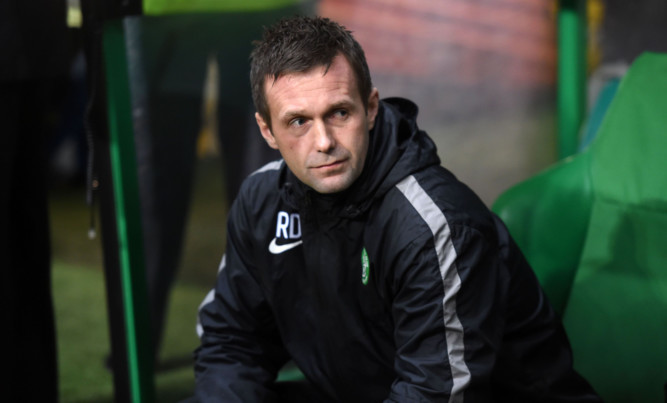
PLAYER recruitment.
According to former Celtic star Alan Stubbs it is the single most important facet of managing a successful football club.
It’s a statement that Ronny Deila would do well to examine if he’s going to survive much longer as manager of the Scottish champions.
In the 18 months since the Norwegian was appointed, the Parkhead club have signed no fewer than 22 players.
Astonishingly, seven of those have been out-and-out strikers, even though Deila very rarely plays more than one up front.
But it’s not until you dig deeper that you begin to get a sense of just how dire recruitment has been.
Realistically, only two players – Craig Gordon and Jason Denayer – could be described as representing value for wages.
The rest have either failed miserably or the jury’s still out.
Cold, hard logic, coupled with bookmakers’ odds running to as short as 25-1 on, suggest Celtic will win the title.
But it’s looking increasingly likely the man who’ll lead them to glory won’t be around to help defend it.
Two-in-a-row – but out the door.
And it’s simply because the players he’s brought in have not been up to scratch.
With Rangers out of the top flight, Deila’s responsibility has been to build a side that can both dominate the domestic game and qualify for the Champions League group stages.
The League Cup semi-final loss to Ross County last Sunday sunk the chance of the Treble.
And while defeat to Aberdeen at Pittodrie four days later didn’t cost them the title, it certainly highlighted their shortcomings.
As successive failures to reach the Champions League – and a calamitous Europa League campaign – suggested, Deila’s team is flawed.
They are slick and impressive when everything is going to plan.
When things go wrong, though, when they fall behind as they did against Aberdeen and Ross County, they lack the passion, pride and fighting spirit which the club has been renowned for.
The complete absence of fight from Gary Mackay-Steven, Stuart Armstrong and Callum McGregor was concerning. It reflects poorly on Deila, who bought two from Dundee United and promoted McGregor from within the ranks.
They are, at least, holding down a place in this Celtic team.
Nadir Ciftci, the third man signed from Tayside, was such a major failure he’s been shipped off to Turkey.
The Tannadice coffers benefitted by £3.5m from Celtic’s investment. The Hoops have had nothing like value for money on the trio.
The former Tangerine trio are not alone in failing under Deila.
So why has it been going wrong?
In order to answer that, it’s important to understand Celtic’s signing policies are much more complex than fans might believe.
Certainly, if Deila sees a player he wants, the matter is straightforward. He tells the board, and if the figures add up, a deal will be done. Think here the recruitments from Tannadice, plus Ryan Christie and Scott Allan.
At the same time, the club’s Head of Football Development, John Park, and his scouts scour Europe and beyond for top young prospects.
Their remit is two-fold – to provide suggestions for players with the ability to help the club in the short term and also to make money later on.
In this instance think Ki, Victor Wanyama, Virgil van Dijk and, most recently, Jozo Simunovic.
Where things start to get complicated is that Deila himself has strong contacts in Scandinavia, and a belief there is value for money there.
Jo Inge Berget and new arrival Erik Sviatchenko are contrasting examples.
Deila also has a strong relationship with Manchester City, forged in his early days as a coach in Norway, which has allowed the Hoops to attract John
Guidetti, Jason Denayer and, in this window, Patrick Roberts, on loan plus Dedryck Boyata on a permanent deal.
Here Deila himself has admitted flaws. He wanted to keep both Guidetti and Denayer, but was unable to persuade them to stay on.
In future, the manager insisted, all loans would have to either contain an option allowing Celtic a chance to buy at the end of term, or be of sufficient length to allow for the players to make a significant contribution.
There was evidence of this change in policy with Roberts, a £12m signing by City from Fulham, coming north for 18 months rather than six.
So Lawwell and the Board do everything they can to help Deila along his chosen route. But they must now be seeing that it hasn’t worked.
As I said, I think it’s Celtic’s title.
But all logic suggests the Board will decide they simply can’t afford to give Deila a third spin on the Champions League roulette wheel.

Enjoy the convenience of having The Sunday Post delivered as a digital ePaper straight to your smartphone, tablet or computer.
Subscribe for only £5.49 a month and enjoy all the benefits of the printed paper as a digital replica.
Subscribe